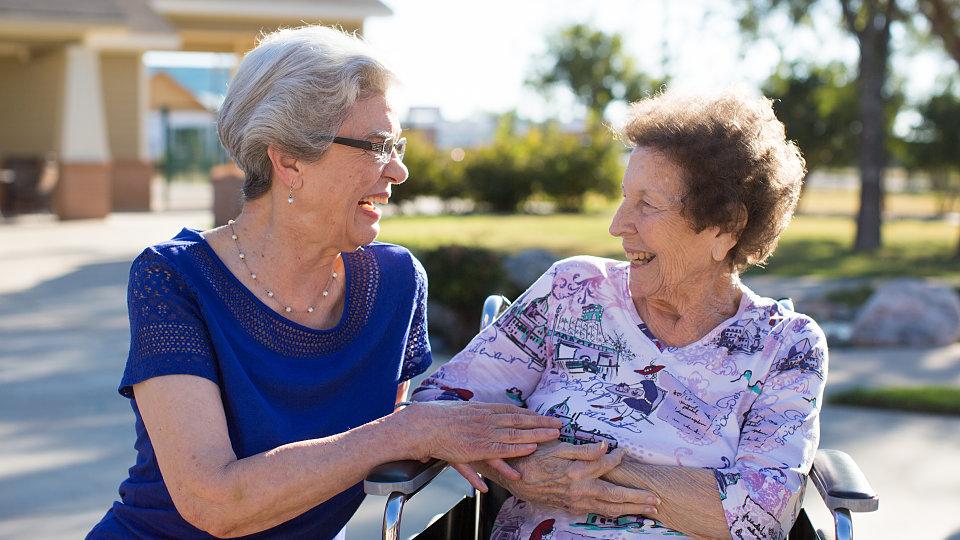How to support a friend or loved one with dementia
Updated Oct. 23, 2018: This article has been updated in the wake of Retired Supereme Court Justice Sandra Day O'Connor's announcement today that she has "beginning stages of dementia, probably Alzheimer's disease." She is the latest of about 5.7 million Americans who suffer from Alzheimer's daily. Buckner Retirement Services offers memory care in all of its senior living communities throughout Texas.
How do you respond when friends receive a diagnosis for dementia?
The question is a tricky one, because while we know how to respond when loved ones have the flu, a broken elbow or even cancer, we rarely know how to provide hope when it comes to memory loss.
The Alzheimer’s Association defines dementia as “a decline in mental ability severe enough to interfere with daily life.” It’s a chronic disease that affects an estimated 5.7 million Americans each year.
However, even in the face of a dementia diagnosis, there is room for hope.
A recent Wall Street Journal article listed five key strategies to supporting loved ones with dementia.
- Educate yourself.
Alzheimer’s is one of the most common and well-known forms of dementia; however, there are other forms of memory impairment. Resources like the Alzheimer’s Association website are great places to start learning more about dementia, early detection and how you can help.
- Recognize the strengths.
A person living with dementia is still a person first and foremost. They still have interests, passions, hopes and dreams--even memories--that make them who they are. Connect on these points and focus on what they can do, not on what they can’t.
- Lend a hand.
As dementia progresses, both the caregiver and the loved one will likely find daily tasks more difficult. Offer to help with grocery shopping, walking the dog and transportation. Anything you do creates more time for the loved one and their caregiver to enjoy sweet moments together.
- Offer relief.
Just as much as the loved one with dementia needs support, so does their designated caregiver. Offer to spend time with the dementia patient so the caregiver can enjoy a meal out, run personal errands and take a break.
- Become an advocate.
One of the best ways to support your loved one with dementia is becoming the advocate they can no longer be for themselves. Stand up for Alzheimer’s research, join support groups and help raise awareness.
At Buckner senior living communities, we know it may take time to fully understand the dementia diagnosis you, your friend or loved one have received, and we’re here to help every step of the way.
Check out the full Wall Street Journal article here, and call 800-381-4551 to learn about a dementia support group at a Buckner senior living community near you.




Add a Comment